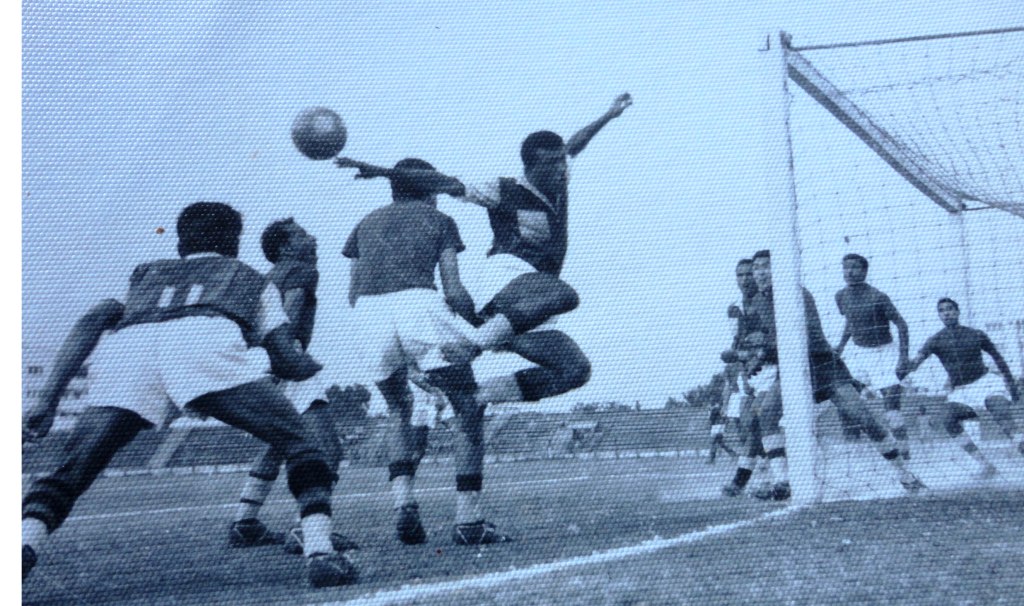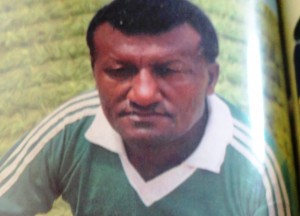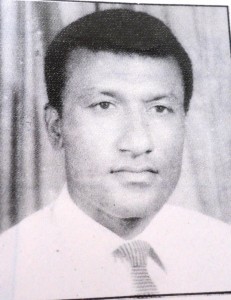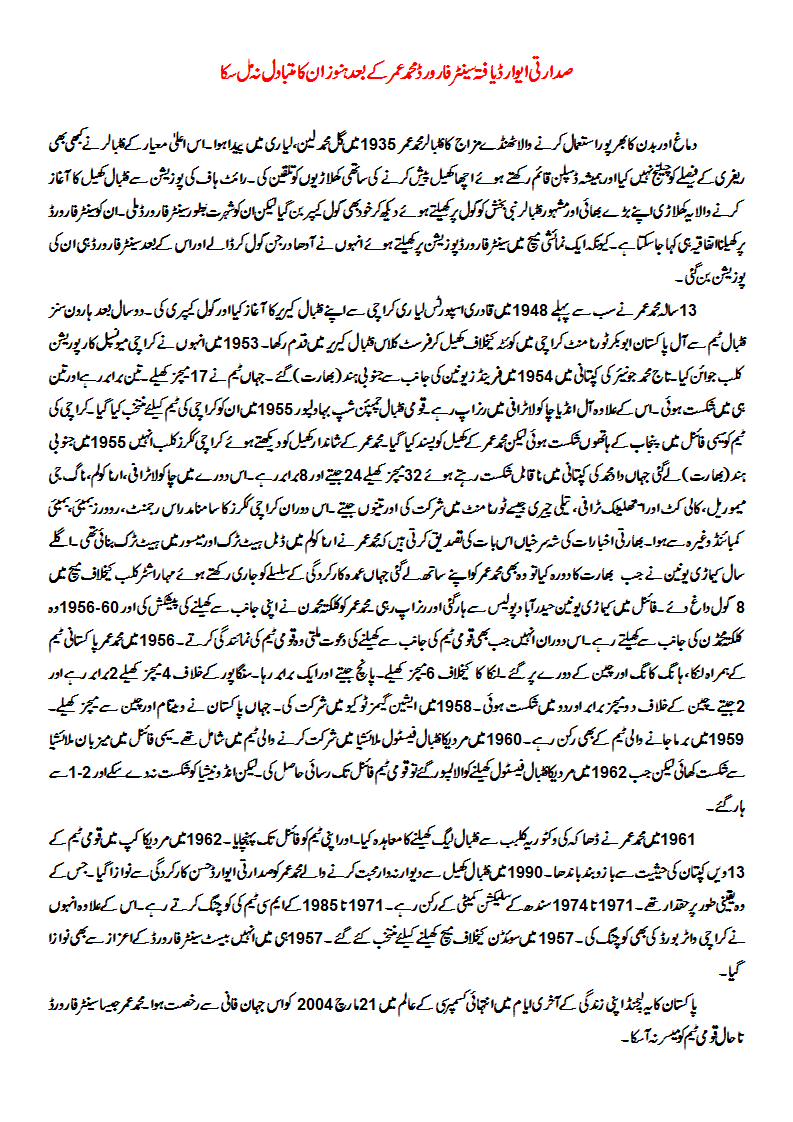Presidential award winning centre forward Muhammad Umer was unmatchable
Known for his cool mannerisms and commanding presence on the field, footballer Muhammad Umer was born in 1935 in Gul Muhammad Lane in Lyari, Karachi. He was among those rare breed of supremely disciplined footballers who never challenged any refereeing decisions, instead urging his teammates to concentrate on playing good.
Umer grew up idolising his older brother Nabi Bakhsh who played as goalkeeper, and wanted to emulate him in goal when he started. But he ended up making a name for himself as a right-forward by chance after scoring half a dozen goals in a single friendly match playing whilst playing as a centre forward.
Aged 13, Muhammad Umer started playing for a local side Qadri Sports in 1948. Two years later, he made his senior level debut for Haroon Sons in Karachi for the All-Pakistan Abu Bakr Tournament against Quetta. In 1953, he joined the Karachi Municipal Corporation (KMC) team, and a year later even toured southern India with Friends Union under the captaincy of Taj Muhammad Jr.
The 1953 south India tour saw Friends Union play 17 games with only 3 defeats and 3 draws, also finishing runners-up in the All-India Chakola Trophy. Umer was selected to play for Karachi in the 1955 National Football Championship in Bahawalpur, where he caught the eye of everyone and helped Karachi reach the semi-finals where they lost to Punjab. His performance in the NFC made Karachi Kickers take Umer for another south India tour the same year under captaincy of Dad Muhammad where the side returned unbeaten after 32 games with 24 wins and 8 draws.
Karachi Kickers took part, and won, in various regional/invitation tournaments including the Chakola Trophy in Ernakulam, the Nagji Memorial in Calicut (Kozhikode), and the Athletic Trophy in Tellicherry (Thalassery) in their 1955 south India tour. Kickers also faced off against sides like Madras Regiment, Rovers Bombay, and Bombay Combined. The local Indian newspapers at the time reported that Umer scored six goals in a single game in Ernakulam as well as a hattrick in Mysore.
In 1956 Umer again went on his third south India tour, this time with Kemari Mohammedan where he continued his goalscoring exploits, including 8 goals in a single game against a Maharashtra FC side but lost a tournament final to Hyderabad Police. Calcutta’s Mohammedan SC offered Umer to play for their side, which he accepted and regularly played for them between 1956-60. Umer also became a regular for the Pakistan NT during this time. Muhammad Umer also started playing for Victoria FC in Dacca (Dhaka) in 1961 where they reached the final of the local league in former East Pakistan.
With Pakistan, Umer first went on tour to Sri Lanka, Hong Kong, and China in 1956. During this tour, Pakistan won 5 games and drew once against Sri Lanka, won twice and drew twice against Singapore, and drew twice and lost twice against China. Umer was part of the Pakistan side that played in the 1958 Tokyo Asian Games where they played in a group featuring eventual gold winners Republic of China (Taiwan) and South Vietnam. Umer also went on the 1959 tour to Burma with Pakistan as well as the 1960 Merdaka Cup in Malaysia. Pakistan lost to the hosts in 1960 semi-final but reached the 1962 edition’s final under Umer’s captaincy only to lose to Indonesia. He was Pakistan’s 13th captain. He even played and impressed in an unofficial friendly against Sweden in 1957.
After retiring from playing, Muhammad Umer remained active in the game as a coach. Between 1971-74, he was part of Sindh’s football selection committee as well as coaching the KMC team between 1971-85, and the Karachi Water & Sewerage Board (KWSB) team later. In 1990, the Presidential Pride of Performance Award was bestowed to Muhammed Umer for his dedication to football.
Unfortunately, one of Pakistan’s greatest ever centre forwards Muhammad Umer spent most his final decades in abject poverty and neglect, passing away on 21 March 2004. Those who witnessed him play say no one has yet to match his skill and discipline to this day.
Originally written in Urdu by Karachi-based football writer Riaz Ahmed.





